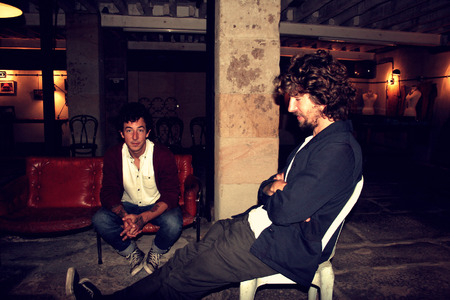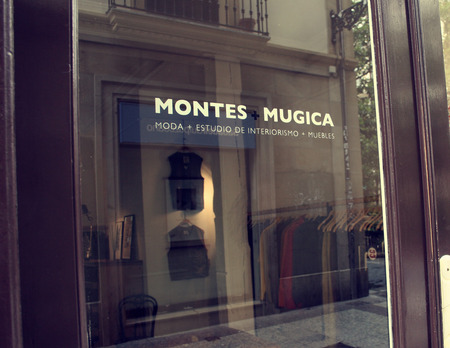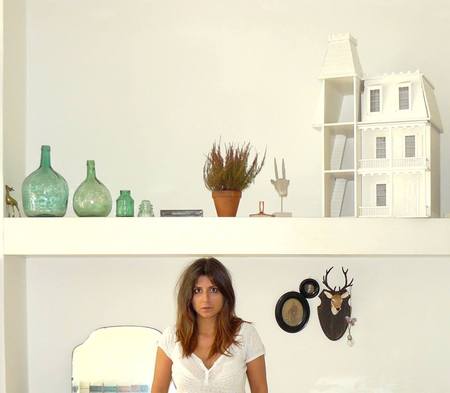Young and In Business in San Sebastián
Below my apartment, once a month, there is a market of handmade wares: everything from surfboards to wooden-framed bicycles to restored vintage cameras. This new market is known, simply, as La Central (the name the space has carried with it since its inception).
Recently, I sat down with the two brothers who are behind this new market, José and Javier Múgica. Their family business, Montes + Múgica, goes back to their grandmother, who started it over 70 years ago, making curtains. Since then, the family has had several stores in San Sebastián and even in Palma de Mallorca, with each generation bringing a different interest and skill to the mix. The brothers run the Calle Narrika location.
Both brothers have a background in art, and Javi studied illustration and animation in Barcelona. A little about the history of La Central, which started as a multi-use building: " There was a hair salon, a cafe, a place for tattos, albums; each person was in charge of their section," says José. Then La Central converted into a furniture store, where José began working with this father. After it closed, the building was for rent for many years. Now the brothers have decided to put it on the market (whoever snatches this space up will be one lucky buyer) and use the Sunday events as a sort of advertisement.
"The idea, when we had it, it was like 'We have to do this, no matter what. We put it on Facebook the first day, and a lot of people clicked 'Like'," says José.
The result?
"We try to find people that we want to sell, and they have sold really well," says José. There are about twenty spots at the Sunday market, which has been done in a bit of an under-the-radar way. What do I mean? Let's say, when it comes to San Sebastián, the old adage "It's easier to ask forgiveness than it is to get permission" has never rung more true. In fact, when speaking to these two brothers, the tight yet seemingly random control that the laws of the town hall exert over businesses and entreprenueurs seems to potentially be the downfall of the city.
"It's getting worse, really fast," says Javi. "Small businesses are going to die. Young people have great ideas, but with the government regulations, the best for young people is to leave." Using the future opening of Burger King and a mega-Zara as examples, the brothers comment on how for their business there has been very little flexibility. A basement declared unusable, laws limiting what they are allowed to sell, and the general aversion to change has affected their ability to carry out entreprenueurial ideas and has them ready to give up on the city.
"Go to Denmark and you can open a business in two days. Here it takes two months. I don't want to be brusque," says José. "But San Sebastián is trash."
I also spoke with Natàlia Martínez Bonell, a young business owner whose store is Cosmojet, which sells everything imaginable necessary for building one's own leather bracelets, purses and accessories.
Her store was once located in the slightly further-out neighborhood of Egia, but she moved it to the center in search of a broader customer base. So how is she faring in the sort-of-square hamlet of Donosti? Her store faced the typical challenges that any store would, like "pulling together what savings I had and beginning with the basics, to be able to grow bit by bit," says Natàlia.
Natàlia has a more diplomatic version of Donosti to share, albeit with the same undercurrents of the Múgica brothers: "I love it. It's a beautiful city with loyal people," she says. "New ideas and innovative things scare them a bit. Here it's like they overthink things. Here they are a little more classic, they prefer the known, and the new brings uncertainty."
Normal, to an extent. But when the justification for not allowing a new business venture is that surrounding business owners "will complain...they're here all year and then someone comes along in summer and takes their business" (overheard), you have to think that a tiny bit of capitalism wouldn't hurt. And when laws remain the same for reasons unknown, making entire trends and business models (like food trucks) impossible, you are seeing a city that is setting itself up for decline.



